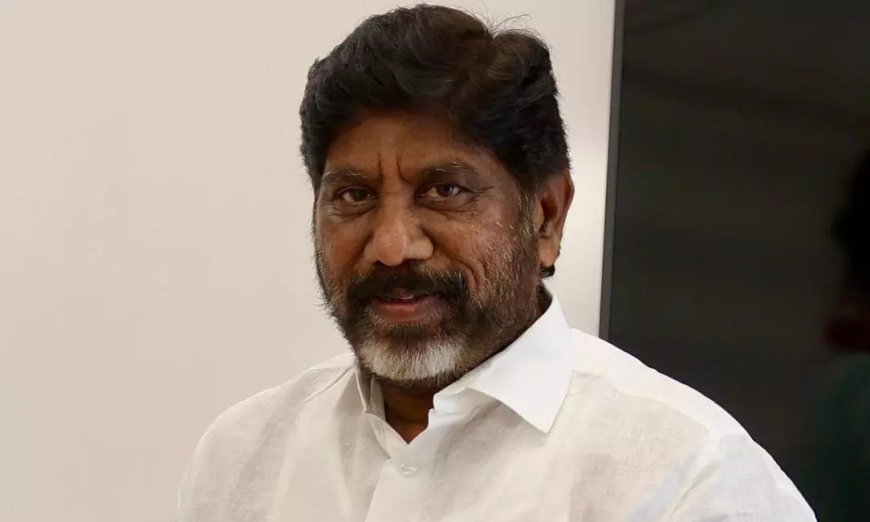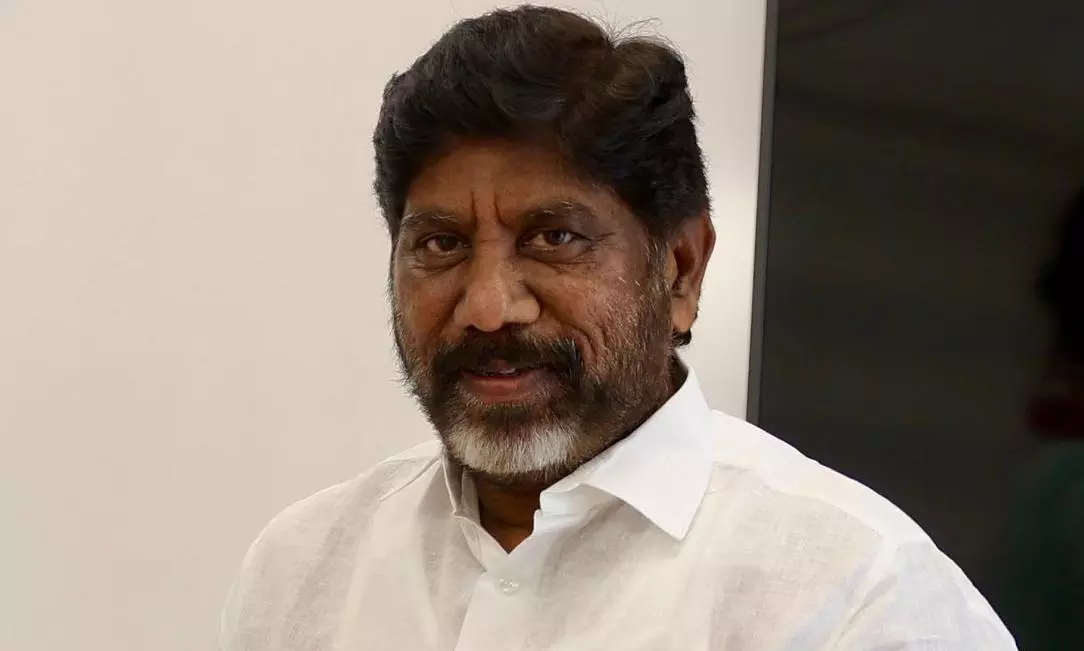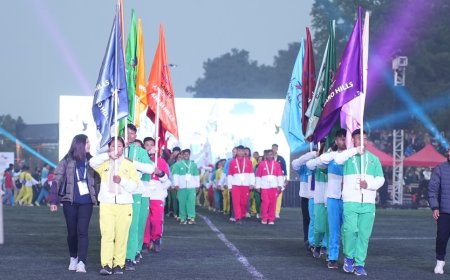Telangana underfunded in Centrally Sponsored Schemes: Bhatti
Hyderabad: Deputy Chief Minister Mallu Bhatti Vikramarka on Friday said despite being among the fastest-growing States and contributing significantly to the national economy, Telangana has been underfunded in Centrally Sponsored Schemes (CSS). At the pre-budget meeting with Union Finance Minister Nirmala Sitharaman in New Delhi, he said Telangana was requesting allocations based on population ratios, disbursed promptly without bias apart from greater flexibility in CSS implementation to address regional-specific needs is also necessary. Referring to pending dues under the AP Reorganization Act-2014, he said Telangana’s bifurcation commitments remain unfulfilled. He urged the Central government to release pending grants of Rs.1,800 crore under Section 94(2) in addition to an extension of the annual Rs.450 crore grant for five more years to support backward districts. On infrastructure investments for backward districts, Bhatti sought funds for critical infrastructure such as industrial parks, irrigation projects, and highway networks. Extending the Smart Cities Mission to emerging urban centres is also crucial, he said. With regard to flexibility in MGNREGA utilization, he urged the Central government for greater flexibility to use MGNREGA funds for innovative public works that generate employment while creating durable assets. Increased allocations are essential to tackle rural job distress. On MSME development and industrial support, the Deputy Chief Minister advocated implementation of a PLI scheme for MSMEs in high-potential sectors. Affordable financing under RBI guidelines is needed to revive sick units. GST rationalization is also critical to ease input costs for MSME industries. Referring to borrowing flexibility and fiscal autonomy, Bhatti said that to enable States to meet their development goals, Telangana needs communication of Net Borrowing Ceilings alongside tax devolution figures during budget presentation. Removal of conditionalities on borrowings will allow greater fiscal space. On climate resilience and sustainability initiatives, Telangana has undertaken pioneering initiatives for sustainability. The State requests access to green financing mechanisms for sustainable infrastructure projects. Dedicated Union funds to strengthen climate resilience initiatives are also needed, he said. Stating that Telangana remains committed to being a growth engine for India, Bhatti said fiscal fairness, MSME revival, infrastructure investments, gig worker security, and equitable resource allocation were critical for the shared vision of a vibrant and resilient India. “We urge the Central government to consider our specific priorities with the attention they deserve. By empowering the States and fostering a collaborative federal structure, we can achieve inclusive growth, balanced fiscal consolidation, and sustainable development for the nation,” he added. Referring to fiscal consolidation with growth focus, Bhatti said the fiscal consolidation roadmap laid out in 2021 has served well. “We move towards FY26, balancing fiscal discipline with growth imperatives becomes crucial. Telangana supports a realistic fiscal deficit target of 4.5 per cent of GDP to sustain momentum in infrastructure and employment generation,” he explained. From FY27 onwards, Telangana emphasizes a growth-driven approach to reducing the debt-to-GDP ratio rather than an austerity-driven strategy. On simplifying India’s tax system, he said reforms to the Income Tax Act were a welcome step. India’s current tax system is complex, leading to compliance burdens for individuals and businesses alike. Telangana urges simplification of tax slabs and reduction of corporate tax rates to enhance ease of doing business. Streamlining income tax and GST filing processes is vital as these processes currently consume weeks for mid-sized and large businesses. Expanding the tax base through digital tracking of financial transactions and encouraging voluntary compliance are also key measures. With regard to capital expenditure for economic resilience, Bhatti said amid global uncertainties and domestic slowdowns, robust capital expenditure stimulus is essential. Telangana requests enhanced Special Assistance to States for Capital Expenditure with an allocation of Rs.2.5 lakh crore annually. Flexibility in fund utilization without restrictive conditions like branding requirements under Centrally Sponsored Schemes (CSS) is also important. Referring to MSME Revival and Technological Modernization, Bhatti said MSMEs were the backbone of India’s economy but face structural challenges in financing, technology, and competitiveness. Telangana proposes the establishment of a Technology Upgradation Fund for MSMEs. Extension of PLI schemes to sectors like power electronics, plastics recycling, and emerging technologies is necessary. Reduction or exemption of GST on critical machinery will lower production costs and encourage Industry 4.


Hyderabad: Deputy Chief Minister Mallu Bhatti Vikramarka on Friday said despite being among the fastest-growing States and contributing significantly to the national economy, Telangana has been underfunded in Centrally Sponsored Schemes (CSS).
At the pre-budget meeting with Union Finance Minister Nirmala Sitharaman in New Delhi, he said Telangana was requesting allocations based on population ratios, disbursed promptly without bias apart from greater flexibility in CSS implementation to address regional-specific needs is also necessary.
Referring to pending dues under the AP Reorganization Act-2014, he said Telangana’s bifurcation commitments remain unfulfilled. He urged the Central government to release pending grants of Rs.1,800 crore under Section 94(2) in addition to an extension of the annual Rs.450 crore grant for five more years to support backward districts.
On infrastructure investments for backward districts, Bhatti sought funds for critical infrastructure such as industrial parks, irrigation projects, and highway networks. Extending the Smart Cities Mission to emerging urban centres is also crucial, he said.
With regard to flexibility in MGNREGA utilization, he urged the Central government for greater flexibility to use MGNREGA funds for innovative public works that generate employment while creating durable assets. Increased allocations are essential to tackle rural job distress.
On MSME development and industrial support, the Deputy Chief Minister advocated implementation of a PLI scheme for MSMEs in high-potential sectors. Affordable financing under RBI guidelines is needed to revive sick units. GST rationalization is also critical to ease input costs for MSME industries.
Referring to borrowing flexibility and fiscal autonomy, Bhatti said that to enable States to meet their development goals, Telangana needs communication of Net Borrowing Ceilings alongside tax devolution figures during budget presentation. Removal of conditionalities on borrowings will allow greater fiscal space.
On climate resilience and sustainability initiatives, Telangana has undertaken pioneering initiatives for sustainability. The State requests access to green financing mechanisms for sustainable infrastructure projects. Dedicated Union funds to strengthen climate resilience initiatives are also needed, he said.
Stating that Telangana remains committed to being a growth engine for India, Bhatti said fiscal fairness, MSME revival, infrastructure investments, gig worker security, and equitable resource allocation were critical for the shared vision of a vibrant and resilient India.
“We urge the Central government to consider our specific priorities with the attention they deserve. By empowering the States and fostering a collaborative federal structure, we can achieve inclusive growth, balanced fiscal consolidation, and sustainable development for the nation,” he added.
Referring to fiscal consolidation with growth focus, Bhatti said the fiscal consolidation roadmap laid out in 2021 has served well. “We move towards FY26, balancing fiscal discipline with growth imperatives becomes crucial. Telangana supports a realistic fiscal deficit target of 4.5 per cent of GDP to sustain momentum in infrastructure and employment generation,” he explained. From FY27 onwards, Telangana emphasizes a growth-driven approach to reducing the debt-to-GDP ratio rather than an austerity-driven strategy.
On simplifying India’s tax system, he said reforms to the Income Tax Act were a welcome step. India’s current tax system is complex, leading to compliance burdens for individuals and businesses alike. Telangana urges simplification of tax slabs and reduction of corporate tax rates to enhance ease of doing business. Streamlining income tax and GST filing processes is vital as these processes currently consume weeks for mid-sized and large businesses. Expanding the tax base through digital tracking of financial transactions and encouraging voluntary compliance are also key measures.
With regard to capital expenditure for economic resilience, Bhatti said amid global uncertainties and domestic slowdowns, robust capital expenditure stimulus is essential. Telangana requests enhanced Special Assistance to States for Capital Expenditure with an allocation of Rs.2.5 lakh crore annually.
Flexibility in fund utilization without restrictive conditions like branding requirements under Centrally Sponsored Schemes (CSS) is also important. Referring to MSME Revival and Technological Modernization, Bhatti said MSMEs were the backbone of India’s economy but face structural challenges in financing, technology, and competitiveness.
Telangana proposes the establishment of a Technology Upgradation Fund for MSMEs. Extension of PLI schemes to sectors like power electronics, plastics recycling, and emerging technologies is necessary. Reduction or exemption of GST on critical machinery will lower production costs and encourage Industry 4.0 adoption.
He said modernization of Industrial Training Institutes (ITIs) was crucial for skilling youth in new-age sectors like AI, renewable energy, and electronics. Telangana has partnered with over 50 advanced technology centers for upskilling youth and boosting manufacturing competitiveness. Higher allocations for employment programs are needed to address rural and urban job shortages.
He said gig workers were an emerging workforce segment contributing significantly to the economy but often lack social security and fair working conditions. Telangana recommends establishing a national framework for gig worker social security, including health insurance, pension schemes, and accident coverage. Formal recognition of gig workers is essential to ensure minimum wage protections and access to labor rights. Creation of a grievance redressal mechanism to address disputes between workers and platforms efficiently is critical. Encouraging platform companies to contribute towards gig workers' welfare funds is equally important.






































